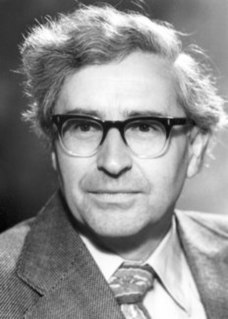A Quote by Thomas A. Edison
In 'Common Sense' Paine flared forth with a document so powerful that the Revolution became inevitable. Washington recognized the difference, and in his calm way said that matters never could be the same again.
Related Quotes
Thomas Paine, so celebrated and so despised as he traveled through the critical events of his time, has long appealed to biographers. Paine was present at the creation both of the United States and of the French Republic. His eloquence, in the pamphlet 'Common Sense,' propelled the American colonists toward independence.
And then I saw him and nothing was ever the same again. The sky was never the same colour, the moon never the same shape: the air never smelt the same, food never tasted the same. Every word I knew changed its meaning, everything that once was stable and firm became as insubstantial as a puff of wind, and every puff of wind became a solid thing I could feel and touch.
We could go back," he said. In the dome light of the car, his face looked hard as stone. "We could go back to your house. I can stay with you always. We can know each other's bodies in every way, night after night. I could love you." His nostrils flared, and he looked suddenly proud. "I could work. You would not be poor. I would help you." "Sounds like a marriage," I said, trying to lighten the atmosphere. But my voice was too shaky. "Yes," he said.
Common sense is the guy who tells you that you ought to have had your brakes relined last week before you smashed a front end this week. Common sense is the Monday morning quarterback who could have won the ball game if he had been on the team. But he never is. He's high up in the stands with a flask on his hip. Common sense is the little man in a grey suit who never makes a mistake in addition. But it's always someone else's money he's adding up.
Because I had visited Silicon Valley, I recognized the microprocessor was going to lead the second industrial revolution. We Chinese could not miss that opportunity again - we missed the first industrial revolution already. We put our effort into trying to bring this new technology from the United States to Taiwan. That was the begining of Acer.
I always think about Katharine Graham - she was the publisher of The Washington Post. In her autobiography she talks about the way her parents met. Her father was, I think, in New York just walking by on his way home and looked into a store and saw the lady that became his wife. It was just pure luck. And she said that it once again reminds her of the role that luck and chance play in our life. I really believe that, too.
The ghostly presence of virtual particles defies rational common sense and is nonintuitive for those unacquainted with physics. Religious belief in God, and Christian belief that God became Man around two thousand years ago, may seem strange to common-sense thinking. But when the most elementary physical things behave in this way, we should be prepared to accept that the deepest aspects of our existence go beyond our common-sense intuitions.
On one level, all of the characters in 'Game of Thrones' grow out of George R.R. Martin's imagination. Therefore they are his. As long as they are in the novels they are his. But the moment they step forth onto the TV screen, they become filtered through the showrunners. In a business sense, it's the same way with comics.




































